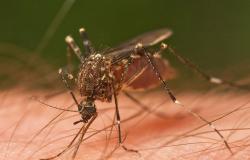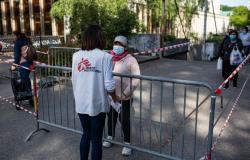During the COVVI-19 pandemic, the illegal pet trade arose to maintain itself at a high level. If dogs still represent most of this traffic, cats today occupy an increasing place.
Globally, animal trafficking is the most lucrative illegal business, after drugs and weapons. And Switzerland is not spared, in particular from the Cavid-19 pandemic. “When the demand for pets exceeded the supply, prices have exploded. It showed traffickers the financial potential of this market,” said Nicolas Roeschli of the Four Pattes organization, in the program A good Enteur de la RTS.
As with any illegal traffic, there are no exact statistics. But controls on the ground report a sharp increase. In the canton of Vaud for example, we went from less than ten cases in 2008, to 306 last year.
Animal suffering and Health risks
“Due to the development of announcements and social networks, the supply for pets is almost unlimited and immediate,” explains Giovanni Pedudo, Cantonal Vaudois veterinarian. “This increases the risk of leading to illegal imports.”
The stakes are high: animal suffering, risk of spreading dangerous diseases such as rabies, financial consequences for those who acquire these animals.
Because it is not always easy to find a cat in the desired breed, some buyers are ready to take illegal paths
The observation is the same on the side of Swiss customs. Since 2020, the cases identified of illegal pets of pets have been multiplied by 6. The majority of this traffic still concerns dogs, but the share of cats has regularly climbed in recent years to represent today 15.7% of cases.
Go up the sectors
“Because it is not always easy to find a cat in the desired breed, some buyers are ready to take illegal paths,” regrets Martin Reist, health and protection responsible for the Federal Office for Food Safety and Veterinary Affairs (OSV).
-The four -legged Foundation was able to go up certain sectors of these trafficking. Videos shot in hidden camera showed the disastrous conditions in which some dogs are raised, especially in Romania. “There were absolutely unhealthy conditions, animals piled up in cages, others guarded in enclosures covered with excrement, frightened animals, but also sick animals,” denounces Nicolas Roeschli.
In Switzerland too, farms offer illicit sales. The editorial staff of a good hearing followed Lucia Oeschger from the Swiss Protection of Animals (PSA), in her work control work on the Internet. “You have to be wary of cat photos that are too staged, for example in front of flowers or on a cushion,” warns the expert. “It is quite typical of animal trafficking.”
Strengthen import rules
One of the announcements identified by the specialist offered a very fashionable cat breed now: the Scottish Fold. Their folded ears, because of a genetic mutation, are considered as an average to severe constraint according to the federal ordinance for the protection of animals. “These cats could have problems at the skeleton which would prevent them from moving properly or which would cause particular pain,” warns the Cantonal Vaudois veterinarian.
Before selling Scottish Fold kittens, a practicing veterinarian must therefore certify that the constraints linked to their race are less important than their parents. But as Abe has seen, this obligation is not always followed by breeders.
>> Read also: The pet market explodes and attracts start-ups
Because it is impossible to monitor ads for animals 100%, OSV wants to strengthen import rules. For dogs, the electronic chip is already compulsory.
But the Confederation “wants to go further, by forcing breeders abroad to communicate the identification numbers of these animals before their import in Switzerland”, reveals Martin Reist. The rules could also soon harden for cats. A motion was filed on the National Council to also impose on them the wearing of an electronic chip, but the text was rejected Monday by a majority of the People’s House.
Alexandre Willemin








